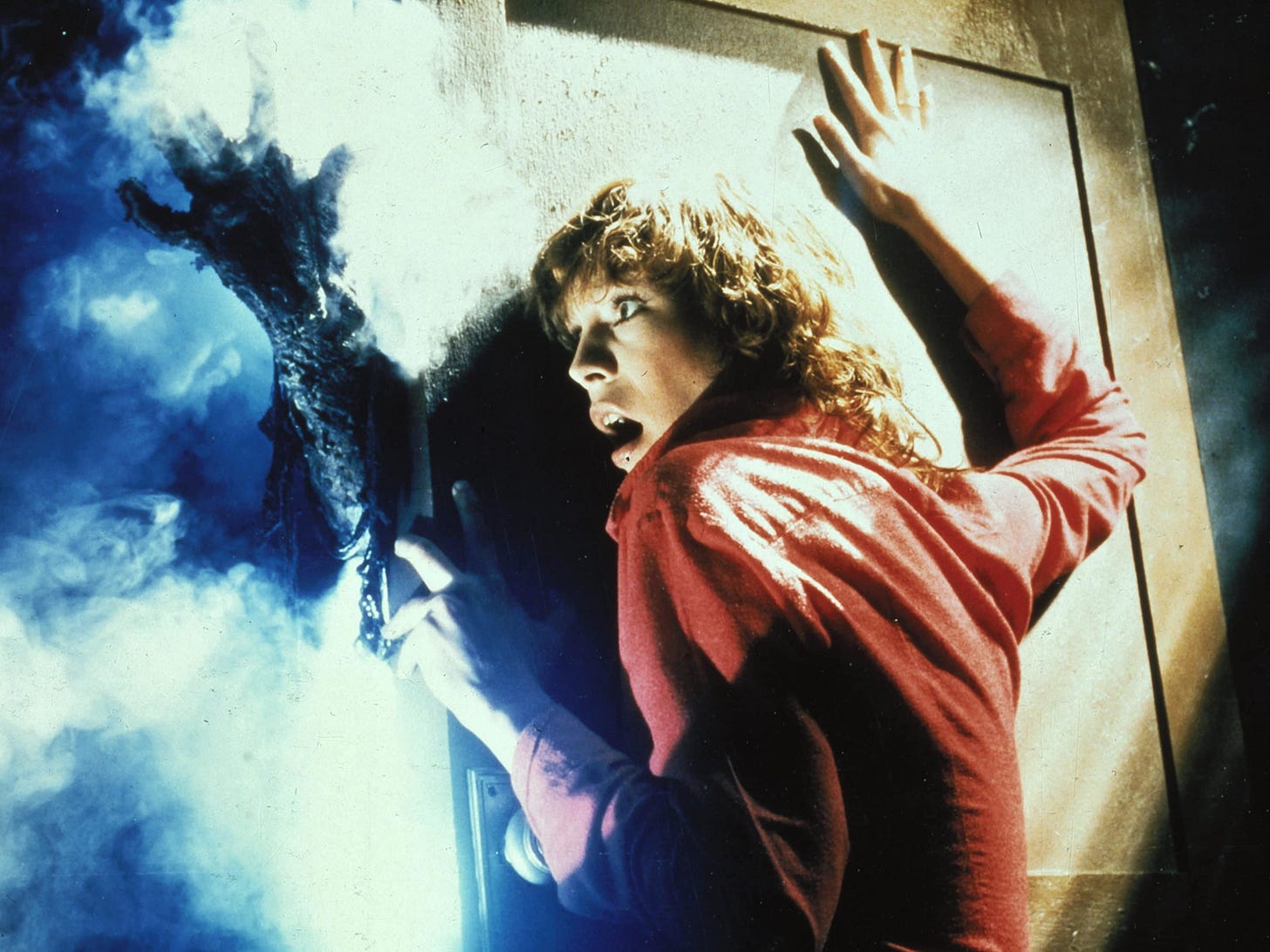Folk horror meets science-fiction: The rural roots of The Calibray Job
Following on from The Calibray Job's opening episode 'Living Cargo', our first [Commentary] dives deep into the folk horror inspiration behind the novella
In John Carpenter’s 1980 film The Fog, the central premise revolves around a town literally haunted by the misdeeds of its founders. Ghosts come to seek revenge for the damage wrought upon them a century before, punishing those who remain. A lot of what informed my early ideas for The Calibray Job centred around this idea of atonement. What does it mean to make a mistake and are there some mistakes that can't be forgiven?
At the start of episode one, Nera is literally asking for something to take away her guilt. She's not looking for absolution so much as she is seeking distraction from unwanted feelings. She wants to forget the consequences of their previous job. Everyone on board the Sol arrived on the ship because they were trying to escape something and they were willing to bend their own morality to facilitate that escape, but their previous job might have pushed them beyond their breaking point.
For these characters, escape often comes in the form of the next job. The next distraction. Captain Beck typifies this, she wears a stoic demeanour like armour remaining laser-focused on the next thing.
Originally, The Calibray Job opened with a chapter showing the crew of the Sol debating the morality of smuggling so-called living cargo. Right up until the day I published the first episode, that chapter was bugging me. It never worked. So I jumped ahead and opened the story with what was originally supposed to be the third chapter. Take this passage from the original opening:
“We got to eat,” she had said, avoiding the glare of Raea as she turned to look out at the vastness of space beyond the Sol’s thin, domed cockpit window. “Sol needs a fresh FTL drive and we all need fuel too, can’t afford to be passing up jobs. Especially legit jobs that won’t mean any heat.”
“Legit? You’ve got to be fucking kidding me,” Raea said, standing from her chair, hands pressed into her hips, thumbs buried in her belt, “Captain.”
The purpose of that opening was to show how the debate over taking the 'living cargo' job had affected Nera moving forward into the story. Looking back at it, I felt that throwing the reader into the aftermath of the job with little context beyond Nera's immediate frame of mind was more in line with the story I wanted to tell. The audience is dealing with those consequences just as Nera is.
The chickens have come home to roost
Folk horror stories like The Fog are often centred around the consequences that result from some horrific action. I loved the idea of taking the trappings of a classic folk horror story and situating it in a science fiction environment. In the case of stories like The Witch and Midsommar, the characters experience consequences for their ignorance. In the 2021 Welsh language film Gwledd (The Feast), the central family experiences the consequences of their having consumed the natural world around them. Folk horror stories are often morality tales about the result of taking something you don't fully appreciate or understand.

What happens if you take the rurality and the folklore of a folk horror story and situate it on an alien world? What does a sci-fi folk horror story look like? There are many commonalities between folk horror, cosmic horror and aquatic horror. They're all dealing with the unknown and its effect on the human mind and body. Whether it’s space, the deep ocean or a rural town on a remote island, all these places act as a means to separate characters from the known and immerse them in the unknown.
The Calibray Job is about a group of people who have all done something morally reprehensible, each for different reasons and each with different conflicted feelings about their actions. It made perfect sense to me to build my story of these people dealing with their guilt out of the same materials used to tell folk horror stories.
Harben is a town in the same mould as Summers Isle from The Wicker Man or Antonio Bay from The Fog. It's a small coastal village whose inhabitants are hardy and adapted to withstand the hostile environment. Unfortunately, as is often the case in folk horror, some have delved too deep and taken too much. What that is, you'll have to wait and see.







I haven't read the first part yet but plan to go back to it. I enjoyed the dig into folk horror. The Feast sounds like something I need to watch ASAP
“Looking back at it, I felt that throwing the reader into the aftermath of the job with little context beyond Nera's immediate frame of mind was more in line with the story I wanted to tell.”
This strikes me as the right move. The opening felt like a good introduction that was moving quickly towards exciting action, and as much as I am always up for characters debating right and wrong, it is the mystery of the facility they are heading towards that really hooked me.
That’s really interesting you made the substitution at the last minute--there’s just something about self-imposed deadlines that seems to me to provide some useful spark that brings out the editor side of writing. A great edit and I’ll be reading the next installments with an eye towards the guilt the crew is carrying.